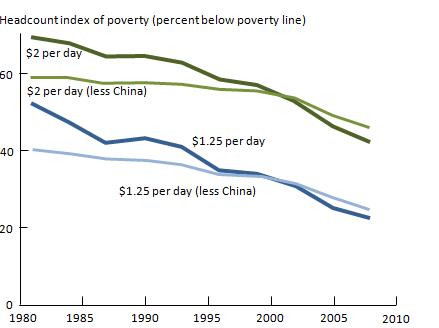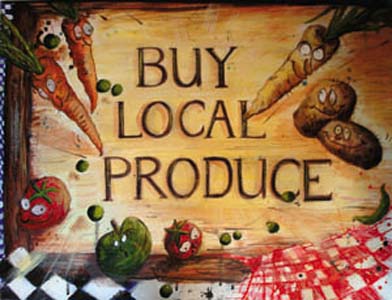By Angela Harbutt
Today, the Institute of Economic Affairs has released a new research paper “Fair Trade without the Froth: A Dispassionate Economic Analysis of “Fair Trade” by Sushil Mohan.
It concludes that claims by the Fair Trade movement are seriously exaggerated. The IEA says that “.. It is likely that producers end up with only a small fraction of the extra margin consumers pay“ , that “Fair Trade doesn’t benefit the poorest producers due to heavy administration requirements and fees involved” and that “Fair Trade does not focus on the poorest countries”.
We agree with all those sentiments.
Buying Fair Trade eases the middle class conscience and little more.
If you really want to help the developing world, fight loud and hard for the removal of trade barriers.
Back in summer of 2009 a guest contibutor to Liberal Vision – Franklin Cudjoe – made many of the points the IEA makes today and having re-read his post this morning I thought it worthy of a second outing…. so here it is….
GUEST POST for Liberal Vision by Franklin Cudjoe 10th July 2009

In the New Statesman’s “Observations on Fairtrade” I was quoted as saying that free trade, not Fairtrade, is the key to developing countries like my own. Here are a few reasons why this is so.
Most of the Fairtrade premium charged by supermarkets does not make it to the poor in developing countries. It has been estimated that only ten per cent filters down, most of it consumed by Western retailers. No wonder that many people suspect that supermarkets are granting monopolies to their own-brand Fairtrade-approved goods for the sake of their own profits. They convince consumers that they are morally obliged to buy Fairtrade stock, offer no alternative, then pocket the difference.
But more importantly, even the amounts that do trickle down will not help economies to develop. Any subsidies provide perverse incentives that can delay development. Increasing prices artificially causes an increase in supply which results in too much produce being grown. As Fairtrade growers only pass on about 20 per cent of their stock to the Fairtrade scheme, the results are quite dangerous, and can result in the market price actually coming down (due to surpluses).
Instead, people in less developed countries need to be able to follow price signals and adapt to changing demands – both from our own markets and those in the West.
Sadly both of these markets are blocked from us by trade barriers. Your governments are partially to blame for this – but even more culpable are our own self-interested politicians.
Trade barriers between African countries are an extreme impediment to our economic development. Shipping a car from Japan to Abidjan, Côte d’Ivoire, costs $1,500 – yet shipping the same car from Abidjan to Addis Ababa, Ethiopia, costs over three times as much – $5,000!
According to the World Bank, removing regional trade barriers would earn Africa an extra $1.2bn a year.
So what can concerned people in wealthier countries do to help? For a start, you can lobby your governments to stop setting a bad example by imposing trade barriers themselves. Many people in poor countries say “rich governments protect their industries, why shouldn’t we?”. The result is that we all lose – but poor countries suffer the most.
We now have a global trade war, arguably prompted by President Obama’s “Buy American” policies in the USA. Ministers at the G8 preach free trade while building up barriers back at home.
Buying Fairtrade is a feel-good scam. It does not help. Those who really want to help should urge their politicians and the G8 to bring down trade barriers – and make a lot of noise about it.
This post was first published on Liberal Vision 10th July 2009. Franklin Cudjoe is the founder and Executive Director of IMANI Center for Policy & Education, a think tank based in Ghana. His work has been cited in House of Commons debates on aid and development in Africa.
Tags:
Fair Trade,
Franklin Cudjoe,
free trade,
IEA,
Institute of Economic Affairs,
Sushil Mohan 


 development economist and Aid Watch blogger, William Easterly, reviews Peter Gill’s new book on Ethiopia since Live Aid,
development economist and Aid Watch blogger, William Easterly, reviews Peter Gill’s new book on Ethiopia since Live Aid,